CANNONBALL & NAT ADDERLEY with RICK HOLMES / “Cannonball Presents Mixtape”
OK, how is it I’m featuring three albums under classics and most listeners have never heard or even heard of these recordings? Well, what had happened was…
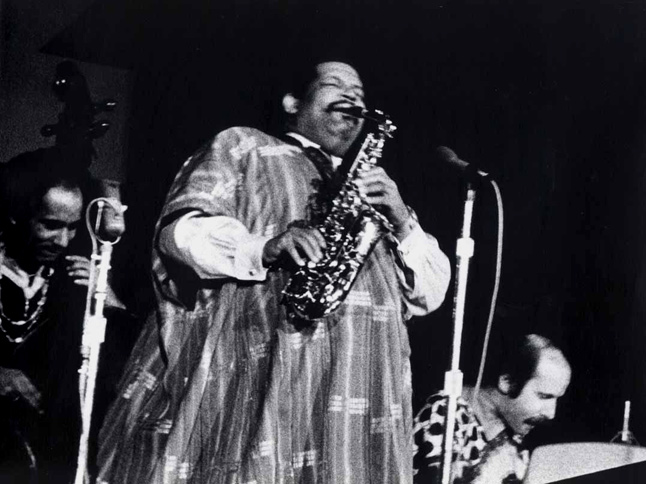 The key is Cannonball Adderley, a leading jazz musician who was also active in R&B. Cannonball, who recorded on R&B records using a pseudonym, was the muse for Branford Marsalis’ pop alter-ego of Buckshot Lafonque. By the time Cannonball started recording for Capitol Records he was one of the most popular jazz musicians of the era. Indeed, some who found both Coltrane and Miles too far out, really, really dug Cannonball’s earthy music and Cannonball’s populist bandstand patter.
Rick Holmes was a major west coast DJ who hooked up with Cannonball to produce three innovative albums that featured Holmes’ narration interlaced into the music. For these recordings the bands were under the direction of Nat Adderley.
The key is Cannonball Adderley, a leading jazz musician who was also active in R&B. Cannonball, who recorded on R&B records using a pseudonym, was the muse for Branford Marsalis’ pop alter-ego of Buckshot Lafonque. By the time Cannonball started recording for Capitol Records he was one of the most popular jazz musicians of the era. Indeed, some who found both Coltrane and Miles too far out, really, really dug Cannonball’s earthy music and Cannonball’s populist bandstand patter.
Rick Holmes was a major west coast DJ who hooked up with Cannonball to produce three innovative albums that featured Holmes’ narration interlaced into the music. For these recordings the bands were under the direction of Nat Adderley.
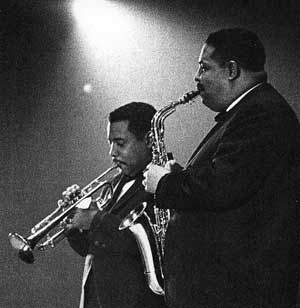 Here were two siblings who figured out how to avoid severe sibling rivalry. Cannonball is listed as the producer and Nat Adderley as the band leader although the core musicians were members of the Cannonball Adderley band of that period.
I don’t know who came up with the Soul Zodiac concept. I wouldn’t be surprised if it was Rick Holmes who initiated the project as Holmes is credited as the writer and narrator. One thing for sure, the album was a major success and spawned a follow-up Zodiac release that focused on sex—say what? Say, yeah Love, Sex and the Zodiac. Moreover, there was also a musical difference.
Soul Zodiac featured psychedelic oriented guitar work from Mike Deasy, sort of like a kissing cousin to Miles’ Bitches Brew. Love, Sex and the Zodiac ditched the psychedelic elements and focused instead on Cannonball’s usual bluesy and R&B-influenced jazz stylings.
When it comes to fusion jazz, too many jazz critics focus only on the Miles Davis rock-oriented jazz fusion sound and completely overlook what some of us called blue collar jazz, which fused jazz with R&B rather than with rock elements.
Love, Sex and the Zodiac is currently out of print but of the two Zodiac recordings I prefer Love, Sex. To me both were novelty items because the main focus was the pop psychology of Holmes’ narration rather than the music.
Now Soul of the Bible is a horse of a different mule, by which I mean rather than focused mainly on Holmes, Soul of the Bible is a genuine jazz album with especially strong vocals and long stretches of hardcore jazz improvisation. The blend of narration, vocals and instrumentals is exemplary. Indeed, I wish Cannon had produced at least 18 more albums like this examining different facets of black cultural life.
Although I find it odd that there are no references to Islam, the eastern religious references to the Bhagavad Gita and Buddhism reflect an open-minded approach to spirituality current among black spiritual strivings during the seventies. Originally issued as a two-LP set, Soul of the Bible is one of the strongest multi-genre concept albums of the seventies. I call particular attention to the percussion by Airto Moreira, King Errisson, Mayuto Correa and Octavio which gives a strong African base to the music.
Here were two siblings who figured out how to avoid severe sibling rivalry. Cannonball is listed as the producer and Nat Adderley as the band leader although the core musicians were members of the Cannonball Adderley band of that period.
I don’t know who came up with the Soul Zodiac concept. I wouldn’t be surprised if it was Rick Holmes who initiated the project as Holmes is credited as the writer and narrator. One thing for sure, the album was a major success and spawned a follow-up Zodiac release that focused on sex—say what? Say, yeah Love, Sex and the Zodiac. Moreover, there was also a musical difference.
Soul Zodiac featured psychedelic oriented guitar work from Mike Deasy, sort of like a kissing cousin to Miles’ Bitches Brew. Love, Sex and the Zodiac ditched the psychedelic elements and focused instead on Cannonball’s usual bluesy and R&B-influenced jazz stylings.
When it comes to fusion jazz, too many jazz critics focus only on the Miles Davis rock-oriented jazz fusion sound and completely overlook what some of us called blue collar jazz, which fused jazz with R&B rather than with rock elements.
Love, Sex and the Zodiac is currently out of print but of the two Zodiac recordings I prefer Love, Sex. To me both were novelty items because the main focus was the pop psychology of Holmes’ narration rather than the music.
Now Soul of the Bible is a horse of a different mule, by which I mean rather than focused mainly on Holmes, Soul of the Bible is a genuine jazz album with especially strong vocals and long stretches of hardcore jazz improvisation. The blend of narration, vocals and instrumentals is exemplary. Indeed, I wish Cannon had produced at least 18 more albums like this examining different facets of black cultural life.
Although I find it odd that there are no references to Islam, the eastern religious references to the Bhagavad Gita and Buddhism reflect an open-minded approach to spirituality current among black spiritual strivings during the seventies. Originally issued as a two-LP set, Soul of the Bible is one of the strongest multi-genre concept albums of the seventies. I call particular attention to the percussion by Airto Moreira, King Errisson, Mayuto Correa and Octavio which gives a strong African base to the music.
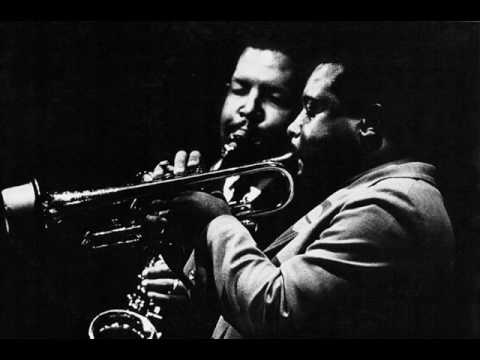 The band is Nat Adderley on cornet, Cannonball on alto and soprano sax, Roy McCurdy on drums, Walter Booker on acoustic bass, Francisco Centeno on electric bass, and George Duke and Nat Adderley Jr. on acoustic and electric pianos.
The featured vocalists are Fleming Williams (“Fun In The Church”), Arthur Charma (“Behold”), Olga James (“Amani”) and Stephanie Spruill ("Space Spiritual"). The vocalists add a truly soulful dimension to the proceedings. I especially admire how thoroughly integrated they are into the overall musical concept. They don’t come off as add-ons but instead are integral elements. Indeed, the vocal contributions are a major reason this is a classic recording.
Whereas the narration of the Zodiac albums sounds a bit dated, there is nothing retro about Soul of the Bible. The whole project sounds contemporary and is a genuine classic of jazz that needs no qualification or contextualization to be appreciated. David Axelrod is a co-producer with Cannonball on all three sessions but whereas Soul Zodiac can easily be catalogued as a commercial effort that has Axelrod’s penchant for fusion rather than straight ahead jazz, there is no equivocation on Soul of the Bible. Indeed, some of the longer cuts are magnificent examples of the spiritual direction that jazz took post-Coltrane when there was a strong, strong emphasis on African rhythms and instrumentation under-girding extended vamps.
The band is Nat Adderley on cornet, Cannonball on alto and soprano sax, Roy McCurdy on drums, Walter Booker on acoustic bass, Francisco Centeno on electric bass, and George Duke and Nat Adderley Jr. on acoustic and electric pianos.
The featured vocalists are Fleming Williams (“Fun In The Church”), Arthur Charma (“Behold”), Olga James (“Amani”) and Stephanie Spruill ("Space Spiritual"). The vocalists add a truly soulful dimension to the proceedings. I especially admire how thoroughly integrated they are into the overall musical concept. They don’t come off as add-ons but instead are integral elements. Indeed, the vocal contributions are a major reason this is a classic recording.
Whereas the narration of the Zodiac albums sounds a bit dated, there is nothing retro about Soul of the Bible. The whole project sounds contemporary and is a genuine classic of jazz that needs no qualification or contextualization to be appreciated. David Axelrod is a co-producer with Cannonball on all three sessions but whereas Soul Zodiac can easily be catalogued as a commercial effort that has Axelrod’s penchant for fusion rather than straight ahead jazz, there is no equivocation on Soul of the Bible. Indeed, some of the longer cuts are magnificent examples of the spiritual direction that jazz took post-Coltrane when there was a strong, strong emphasis on African rhythms and instrumentation under-girding extended vamps.
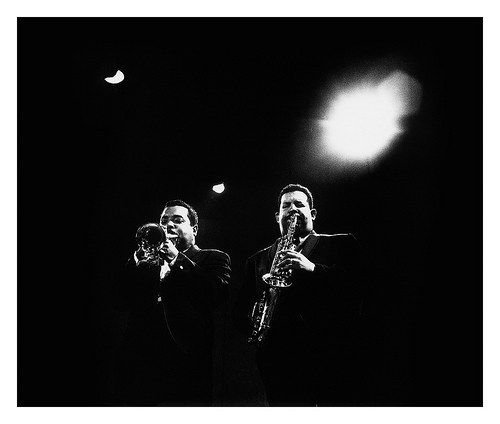 Soul of the Bible, and to a lesser extent the Zodiac recordings, are prime examples of how deep the music of the seventies was. Some of us argue that there was a strong spiritual element to the music. In this case, the spiritual orientation is not only overt, the spiritual element is also swinging.
—Kalamu ya Salaam
Cannonball Presents Mixtape Playlist
Soul of the Bible, and to a lesser extent the Zodiac recordings, are prime examples of how deep the music of the seventies was. Some of us argue that there was a strong spiritual element to the music. In this case, the spiritual orientation is not only overt, the spiritual element is also swinging.
—Kalamu ya Salaam
Cannonball Presents Mixtape Playlist
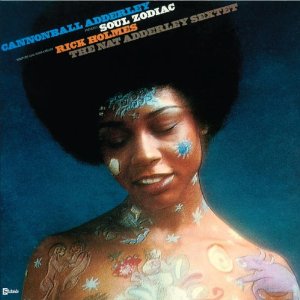 Soul Zodiac
01 “Introduction”
02 “Aries”
03 “Pisces”
04 “Capricorn”
05 “Sagittarius”
Soul Zodiac
01 “Introduction”
02 “Aries”
03 “Pisces”
04 “Capricorn”
05 “Sagittarius”
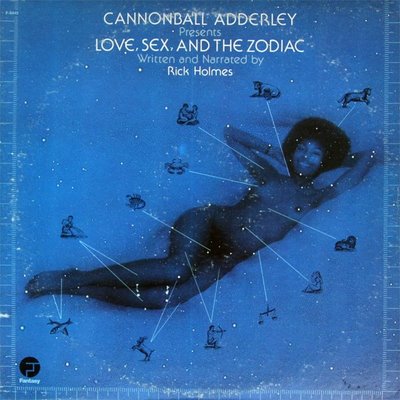 Love, Sex and the Zodiac
06 “Introduction”
07 “Aries: Damn Right”
08 “Pisces: Allison's Trip”
09 “Capricorn: The Gentle”
10 “Sagittarius: West Texas”
Love, Sex and the Zodiac
06 “Introduction”
07 “Aries: Damn Right”
08 “Pisces: Allison's Trip”
09 “Capricorn: The Gentle”
10 “Sagittarius: West Texas”
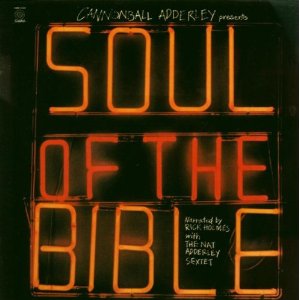 Soul Of The Bible
11 “In the Beginning”
12 “Yield”
13 “Obeah”
14 “Fun in the Church”
15 “The Eternal Walk”
16 “Behold”
17 “Psalm 54”
19 “Amani”
20 “Space Spiritual”
Soul Of The Bible
11 “In the Beginning”
12 “Yield”
13 “Obeah”
14 “Fun in the Church”
15 “The Eternal Walk”
16 “Behold”
17 “Psalm 54”
19 “Amani”
20 “Space Spiritual”
This entry was posted on Monday, November 22nd, 2010 at 4:44 pm and is filed under Classic. You can follow any responses to this entry through the RSS 2.0 feed. You can leave a response, or trackback from your own site.
Leave a Reply
| top |